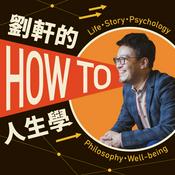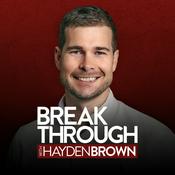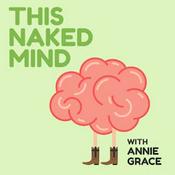298 episodes
- A single pasuk sparks a revolution: “Build Me a sanctuary so I may dwell among them.” We take that line seriously and ask sharper questions. What does it mean to build a house for the unhousable? Why did the Torah devote so much space to the Mishkan, the Beis HaMikdash, and the avodah? And most importantly, what does the mitzvah do to us?
We explore the bigger picture with clear steps. First, the mandate and its scope: an unexpected portion of the 613 mitzvos revolves around the Temple, from offerings to purity laws to vessels. Then, the two main purposes highlighted by the Sefer HaChinuch: centralizing korbanos and uniting the nation through Aliyah L’Regel. We trace the story from Betzalel’s portable Mishkan to Solomon’s grandeur and the rebuilt Second Temple, anchoring it all in Jerusalem’s permanent location. We also examine the classic debate on the future: Rambam’s human-led construction under Mashiach versus Rashi and Tosafot’s vision of a heavenly structure descending in fire.
But the core of our discussion is the why. Using the Sefer HaChinuch and Ramban, we consider the Temple as a training ground where action shapes the soul. Pilgrimage becomes a form of education: long journeys, guarded gates, rising smoke, and hands on the offering—all designed to transform regret into renewal. We challenge a countercultural idea: mitzvos are the workout of the spirit, a precise regimen you can’t outsource. Replace, don’t repair, in a house of dignity; do, don’t just study, when growth needs effort; and embrace the friction that shapes you—yes, even in the humble choice to hand-wrap mishloach manos rather than swipe a card.
If you’ve ever wondered when we can rebuild, who must be present in the Land, what counts as “building,” or how the Ark fits into it all, this episode guides you through sources, history, and lived practice in one clear path. Listen, reflect, and then choose one mitzvah to “lift” with intention this week. If this resonated, subscribe, share with a friend, and leave a review—what part of the Temple’s purpose most surprised you?
Support the show
Join The Motivation Congregation WhatsApp community for daily motivational Torah content!
------------------
Check out our other Torah Podcasts and content!
SUBSCRIBE to The Motivation Congregation Podcast for daily motivational Mussar!
Listen on Spotify or 24six!
Find all Torah talks and listen to featured episodes on our website, themotivationcongregation.org
Questions or Comments? Please email me @ [email protected] Parshas Mishpatim: God’s Kindergarten: The Lesson Most Adults Still Haven’t Learned
13/2/2026 | 24 mins.Imagine the world as a bright, noisy classroom, God at the front as a wise teacher, and all of us as kindergartners still learning how to listen, share, and keep our hands to ourselves. That simple picture becomes a key for unlocking Parshas Mishpatim, turning dense legal chapters into a living guide for how to build trust, repair harm, and honor the people right beside us.
We trace the Torah’s powerful shift from duties to God to duties to each other and unpack why the opening word—“Ve’eleh,” and these—matters so much. It’s the bridge that puts interpersonal law on the same Sinai pedestal as Shabbat and prayer. Through the classroom lens, rules about damages, lending, theft, negligence, and employer‑employee obligations stop feeling abstract. They become the laminated poster on the wall: use kind words, return what you take, arrive on time, protect the small and the new kid, listen when a friend speaks. Rewards and consequences are not bribes and threats; they are the structure that keeps learning possible.
Then we go deeper. Some rules fit everyone, but some care is personal. Just as a parent privately tells the teacher about allergies and sensitivities, the Torah reveals what people can’t tolerate—exploitation, delay, gossip, humiliation—and what helps them thrive—fairness, patience, timely repayment, quiet dignity. We explore how studying your friend’s needs turns halacha into relational wisdom. Advanced sugyas in Bava Kamma and Bava Metzia come alive as tools to restore safety after harm and to keep the classroom calm enough for souls to grow.
By the end, holiness looks less like grand gestures and more like everyday restraint: easing envy’s sting, slowing down on the road, helping lift a burden on the shoulder of I‑95, noticing who stands alone. Keep the classroom image in your mind and Mishpatim starts to sing—justice with a human touch, kindness with a spine, and law as the architecture of peace. If this reframing moved you or clarified a mitzvah you’ve struggled with, subscribe, share the episode with a friend, and leave a review to help others find the show. What classroom rule do you think our world needs most today?
Support the show
Join The Motivation Congregation WhatsApp community for daily motivational Torah content!
------------------
Check out our other Torah Podcasts and content!
SUBSCRIBE to The Motivation Congregation Podcast for daily motivational Mussar!
Listen on Spotify or 24six!
Find all Torah talks and listen to featured episodes on our website, themotivationcongregation.org
Questions or Comments? Please email me @ [email protected]Parshas Beshalach: Even Ezra’s Brutal Truth: Why Your ‘Slave Brain’ is Keeping You Broke and Broken
30/1/2026 | 35 mins.Trapped between the sea and a charging army, most of us freeze. We revisit that iconic crossroads and ask the uncomfortable question Ibn Ezra raises: why didn’t 600,000 people fight when they could have? The answer isn’t about weapons or odds. It’s about identity. A slave doesn’t just fear—he forgets he has options. That insight becomes a mirror for the places where we stall today, certain the tide will never turn, waiting for a miracle to carry us where courage should.
From there, we shift the battlefield inward. The “inner Pharaoh” isn’t a mythic villain; it’s the voice that sounds like a friend, the impulse that calls and we come. We unpack how the yetzer hara blends into our habits, turning gentle nudges into quiet control, and how to break that spell by building a pause, reclaiming agency, and running toward the right fights. Confidence, we argue, isn’t a feeling you wait for. It’s a strategy you choose.
David and Goliath become our blueprint. David rejects heavy armor, selects tools that fit his training, and runs to close the distance. That run matters. It turns intent into momentum and strips fear of its authority. We translate that pattern into clear steps: reframe the enemy, script a first move, act quickly, and track progress. Along the way we challenge the victim label, replace vague hope with disciplined action, and show how a lifted spirit—nefesh gevoha—opens doors that numbers alone never will.
If you’re ready to stop ceding ground to old narratives, this is your invitation to pick the battlefield, lift your posture, and sprint. Subscribe, share with a friend who needs this push, and leave a review with one fight you’re choosing to run toward this week.
Support the show
Join The Motivation Congregation WhatsApp community for daily motivational Torah content!
------------------
Check out our other Torah Podcasts and content!
SUBSCRIBE to The Motivation Congregation Podcast for daily motivational Mussar!
Listen on Spotify or 24six!
Find all Torah talks and listen to featured episodes on our website, themotivationcongregation.org
Questions or Comments? Please email me @ [email protected]Why I Plan to Buy a Thank You Hashem Hoodie but Won’t Sit in the Back of the Wagon with the Baal Shem Tov
23/1/2026 | 30 mins.A quiet “thank you” in Tzfas sparked a movement. From that simple beginning, "Thank You Hashem" evolved into a chorus of songs, hoodies, and heartbeats that you see on street corners and in shul hallways alike. We approached with curiosity and caution—questioning whether catchy slogans and lively concerts can genuinely convey Emunah—or if, amid all the hype, we risk reducing God from Master of the universe to a mascot on a sweatshirt.
Our journey takes a pivotal turn with the Ramban on Parshas Bo. He explains why miracles occur, why mitzvos exist, and what they point to every day: living evidence that God exists, knows, and cares. The Ramban’s bold statement shifts everything—the core intention of all mitzvos is to believe in God and acknowledge that He formed us. If the world’s purpose is human recognition and gratitude, then public reminders can support private devotion—provided they inspire intention and avoid shortcuts.
We discuss origins with the Bloomstein brothers, how music and merchandise spread the message, and the critiques: commercialization, pop aesthetics, and concerns about spiritual fast food. Then we find harmony. Gratitude isn’t just a feeling; it’s a form of service. A hoodie isn’t holiness, but it can serve as a nudge toward it. When songs motivate us to say “I see You” more often—in joy, in struggle, in the everyday—they become tools, not toys. The true test is whether our practices deepen awareness, humility, and thankfulness.
Join us as we shift from skepticism to a stronger embrace of radical gratitude. If you’re wrestling with faith in a noisy world, this conversation offers both caution and encouragement: maintain reverence, hold onto thought, and let reminders draw you back to the purpose of creation. If this resonated, subscribe, share with a friend, and leave a review sharing where you stand on TYH and the work of gratitude.
Support the show
Join The Motivation Congregation WhatsApp community for daily motivational Torah content!
------------------
Check out our other Torah Podcasts and content!
SUBSCRIBE to The Motivation Congregation Podcast for daily motivational Mussar!
Listen on Spotify or 24six!
Find all Torah talks and listen to featured episodes on our website, themotivationcongregation.org
Questions or Comments? Please email me @ [email protected]- Fire and ice fall from the sky, frogs flood the palace, and yet the most surprising instruction isn’t a plague—it’s a posture: speak to Pharaoh as Melech Mitzrayim. We dig into Vaera’s high drama and ask the hard question: why would Moshe be told to honor a tyrant? Drawing on Rashi’s breakdown of Moshe’s three objections, a striking Zohar about illegitimate kings, and Rav Moshe Sternbuch’s powerful thesis, we explore how public honor reframes Pharaoh’s downfall as an unmistakable act of God rather than a political stumble.
From there, we pivot to a pragmatic read with everyday stakes. What if that instruction also models a timeless persuasion principle—treat people with dignity and they will hear you? The Ramban’s guidance on humility and gentle speech becomes a blueprint for conversations that land. Avraham’s hospitality shows how influence is built not with pressure but with honor. And when we bring it home, Rambam’s insights on marriage and mutual respect, plus a clear approach to parenting and professional negotiations, turn a biblical moment into a usable playbook: lead with respect, ask with clarity, and watch defenses drop.
Expect a fast path from text to life: why honoring the other person doesn’t excuse wrong, how to pair conviction with courtesy, and where this approach helps—at home, with kids, at work, and in heated debates. If you’re ready to trade volume for influence and friction for traction, press play, subscribe for more source-driven takeaways, and tell us where you’ll try this first.
Support the show
Join The Motivation Congregation WhatsApp community for daily motivational Torah content!
------------------
Check out our other Torah Podcasts and content!
SUBSCRIBE to The Motivation Congregation Podcast for daily motivational Mussar!
Listen on Spotify or 24six!
Find all Torah talks and listen to featured episodes on our website, themotivationcongregation.org
Questions or Comments? Please email me @ [email protected]
More Education podcasts
Trending Education podcasts
About The Weekly Parsha - With Michoel Brooke
Welcome to "The Weekly Parsha with Michoel Brooke," your go-to podcast for engaging, accessible Torah study.Join us to explore the weekly Torah Parshios, offering insights and life lessons for beginners and seasoned learners. Each 15-to 25-minute episode offers a comprehensive yet digestible exploration of the weekly Parsha.Discover valuable Parsha wisdom to enrich your spiritual journey, deepen your understanding of our holy Torah, and inspire personal growth. Subscribe today and begin your journey into the timeless wisdom of the Torah.NEW! Join on WhatsApp for more motivational Torah content. Send "Greatness" to (757)-679-4497 to subscribe.
Podcast websiteListen to The Weekly Parsha - With Michoel Brooke, Everyday Māori and many other podcasts from around the world with the radio.net app

Get the free radio.net app
- Stations and podcasts to bookmark
- Stream via Wi-Fi or Bluetooth
- Supports Carplay & Android Auto
- Many other app features
Get the free radio.net app
- Stations and podcasts to bookmark
- Stream via Wi-Fi or Bluetooth
- Supports Carplay & Android Auto
- Many other app features


The Weekly Parsha - With Michoel Brooke
Scan code,
download the app,
start listening.
download the app,
start listening.



































